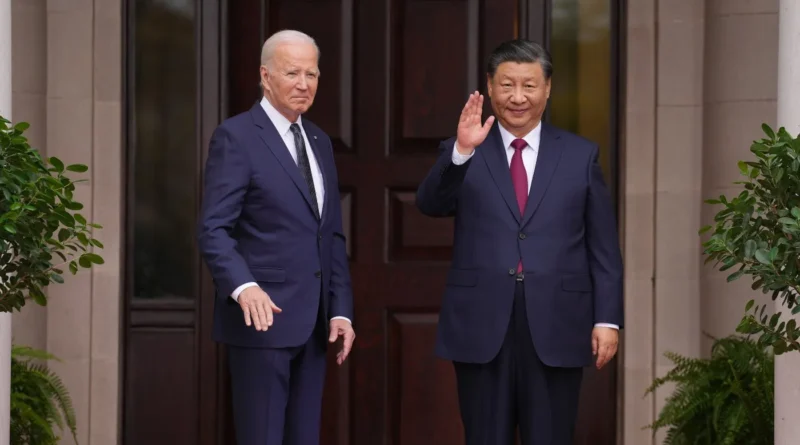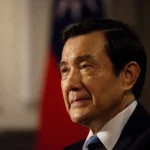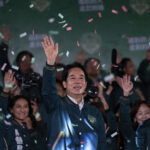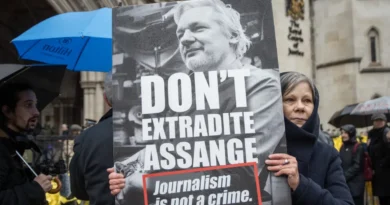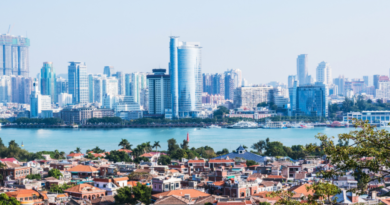Biden–Xi: an anti-cyclonic summit
XULIO RIOS
Can the San Francisco summit ward off the storms of murky Sino-US relations? Many important announcements were not expected, and some progress was taken for granted. That's how it went. But the bucolic atmosphere of the Filoli Garden where some episodes of the popular series were once recorded Dynasty, was not enough to completely remove the underlying differences that remain between the two great powers.
Problems such as Taiwan, the expansion of China's nuclear arsenal or the US ban on exporting advanced microchips have divided the two countries and represent a train of storms that are difficult to match atmospherically.
Despite everything, both parties conspired to highlight the positive aspects of the meeting. Biden said the talks had been “constructive and productive.” He highlighted that when communication breaks down is “when accidents happen.”
However, in the meeting with journalists after the summit, Biden again used the word “dictator” to refer to Xi, as he had done at the beginning of the year. In China, these types of reactions, once the meeting is over and before the media, are interpreted as a complete snub that does nothing to open up clear-cuts in bilateral relations.
The rhetoric of the statements from both parties did not deviate one millimeter from what is known. The US reiterated its promises not to seek a new cold war or change the Chinese political system, nor does it seek to revitalize alliances against China nor does it intend to provoke a conflict with China, rejecting its support for the independence of Taiwan.
China, for its part, without forgetting to demand coherence between words and deeds, did the same: it does not seek hegemony, it does not aim to create zones of influence, the world is big enough for everyone to maximize opportunities, etc. But while the US reiterated its approach to relations in terms of competition, Xi opposed it, although he said he did not fear it.
Biden can present the agreements reached on anti-drug cooperation (fentanyl) as a success, with the creation of a working group; also the resumption of communication between armies or the dialogue on artificial intelligence and its use in the military field. Xi, for his part, achieved the lifting of sanctions against some entities and companies. For both, what is truly notable is the institutionalization of the ability to speak directly.
The economic ties between both countries are deeply intertwined and, in fact, despite disagreements, they continue to act as a relative moderating pillar of general tensions. But they are also the mirror of tensions. There is no setback in time and hostility persists in technological matters as well as selective restrictions on exports or investments.
The views regarding the major international conflicts of the moment, from Ukraine to Palestine, were disparate and remain so. Cooperation will be maintained on climate matters.
Taiwan isobars
Deep differences also remain on the Taiwan question: Xi has asked Washington to stop arming the rebellious island and support the peaceful reunification of China. Biden, on the other hand, emphasized opposition to any unilateral change in the status quo and called for restraint in the PLA's military actions.
Additionally, he demanded from Xi that China refrain from interfering in the ongoing electoral campaign on the island ahead of the legislative and presidential elections in January next year. Paradoxically, the former mayor of Taipei, Ko Wen-je, denounced in parallel that the American Institute in Taiwan, the de facto US embassy on the island, demanded clarification from him on whether the decision to establish a coalition between his party, the PPT , and the KMT had taken under pressure from Beijing…..
What new guarantees have been given on this issue? Public, few; private, maybe some more. Taiwan has reaffirmed itself as the key issue in the relationship. Regardless of whether or not the PDP sovereignists win in January, the US emphasized that it does not support the island's independence. Xi, apparently, assured that he does not plan any military action, neither for 2027 nor for 2035, as some voices in the US venture. Biden rejected the request to stop arms sales to Taipei. Will they moderate?…
Biden has serious difficulties in moderating disagreements on an issue in which Congress has long adopted a position that Beijing interprets as defiant. In 2022 alone, 28 congressmen visited Taipei, marking a record in ten years. Among them was then-Speaker of the House of Representatives, Democrat Nancy Pelosi, who became the highest-ranking US official to travel to Taiwan in a quarter of a century.
Despite stated intentions to stabilize bilateral relations between Washington and Beijing, both sides are aware of the numerous obstacles to achieving this. And one of them and not the least is the US Congress, which has become one of the main drivers of the confrontation with China.
On the eve of the meeting, the US-China Economic and Security Review Commission published an annual report to the US Congress in which it stated that “the outcome of previous high-level meetings between the US and China was simply a promise of “more meetings, that is, more conversations instead of concrete actions.”
The report concluded that, despite new rounds of diplomatic engagement, the trajectory of relations between both countries had only worsened.
Congressional attention toward China has increased exponentially in recent years. Between 2013 and 2021, the number of bills affecting the Asian country multiplied by six. Mentions of China in the US annual military budget draft have increased tenfold in the last five years, going from 32 in the 2018 budget to 268 in the 2023 budget.
During this time, Congress strengthened US ties with Taiwan, authorized billions of dollars of military spending to counter the PLA, restricted China's access to semiconductors, questioned the legitimacy of the CCP, and supported efforts to create a broad regional and global coalition against Beijing.
Anticyclone?
The main success of the summit, therefore, is to place both countries before the challenge of preventing relations from continuing to worsen, setting barriers to do so. Frameworks in the form of principles, core interests, red lines, etc., have been reiterated. Biden does not want more problems in the upcoming electoral contest. Xi, for his part, needs to focus on domestic affairs. If the summit revealed anything, it is that, at this precise moment, neither party is interested in the conflict.
We are, therefore, entering a relative grace period with more dialogue and consultations, perhaps recovering part of the bilateral framework built during the Obama-Hu mandate.
Donald Trump opted for a policy of confrontation with China, considering that the employment problems in his country would be resolved by reversing the trade deficit and granting incentives to North American companies to return home and increase jobs. None of the objectives have been achieved. Despite everything, Biden has not moved away from the logic of relations with China printed by Trump. And he must be “firm” with China ahead of the 2024 elections.

